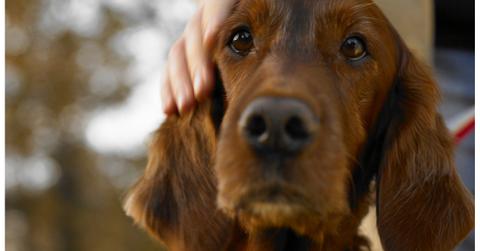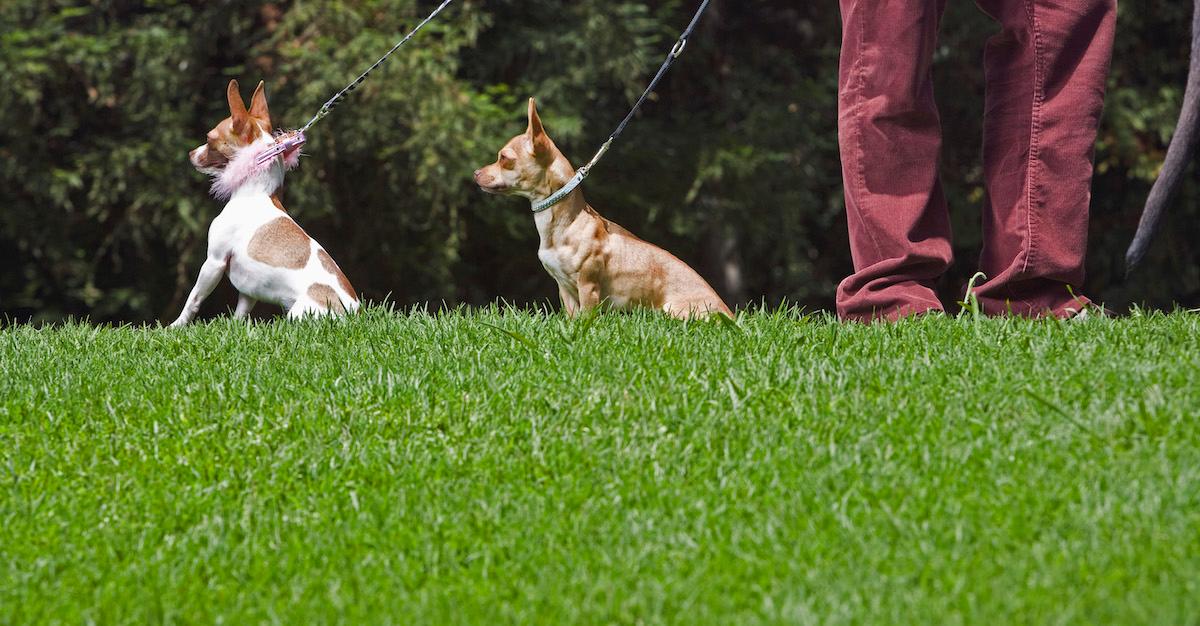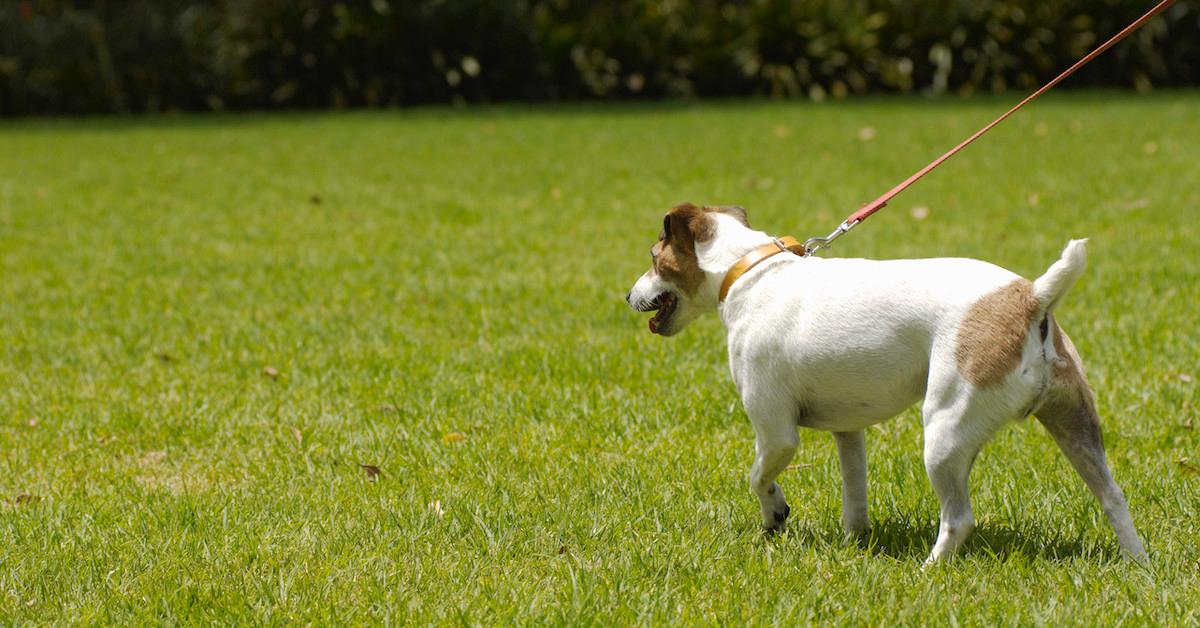What Is Leash Reactivity? If Your Dog Gets Anxious on Walks, You’ll Want to Read This (Exclusive)
Published June 7 2022, 5:14 p.m. ET

Although being a pet parent is mostly filled with endless snuggles and adventures, it can also come with struggles and challenges — especially when it comes to walks.
While long walks are enjoyable for most dogs, a number of dogs struggle with leash reactivity.
Leash reactivity refers to when dogs unexpectedly lash out at other dogs, people, bikes, or cars while on the leash. This can be scary for everyone involved, especially because it can happen with even the sweetest of dogs.
We caught up with dog trainer Rachel Drachman (CPDT-KA), who weighed in on what causes leash reactivity. Before getting started with training, she says, it's important to empathize with your anxious pup.
"With leash reactivity there is always an underlying emotion," she explains via email.
"Some of the most common are frustration, fear, anxiety, over-arousal, or aggression. Regardless of the reason, it's important to understand that your dog is uncomfortable. I don't remember where it came from, but a favorite saying of a lot of trainers is 'Your reactive dog is not giving you a hard time, your dog is having a hard time.'"

What is leash reactivity?
Leash reactivity is when a dog displays aggressive behavior towards something within their surroundings — whether it's towards other dogs, humans, bikes, skateboards, or cars — when walking on the leash. Leash reactivity can be displayed in the form of barking, growling, lunging, or biting, Drachman tells us.
She also says that even non-aggressive dogs may display this type of behavior, because being on the leash can make them feel trapped, vulnerable, and therefore more anxious.
"For some dogs it's the leash itself; they might be frustrated about being held back by something," she explains. "For dogs who are fearful or worried about another dog approaching can be reactive on leash because they know that they are vulnerable, their option of flight response has been taken away."
But it could also stem from your dog having social anxiety — they're simply sending out a message to keep away.
"Many reactive dogs are nervous and want nothing to do with other dogs, even though it seems like they want to get to the other dog," Drachman says. "What they're really saying is 'Look how big and tough I am! Stay away from me!'"

How do I train a dog who has leash reactivity?
Having a leash reactive dog can not only be embarrassing, but it can also pose a risk to your pup and others. And even though it can be difficult to train leash reactivity out of a dog, there are a few steps you can take to mitigate their anxieties — as well as their aggression — while walking on the leash.
"There is no quick fix for reactivity (despite what some advertise). Addressing reactivity involves behavior modification through a lot of classical counterconditioning," Drachman explains.
Since leash reactivity is generally based on emotions, it's important to change how they feel when encountering their triggers on walks.
"One way to start doing this is by bringing high value food on walks and feeding your dog every time they see another dog. This begins to build the association that seeing other dogs means good things happen," she says, stressing that positivity is key.
"When working with leash reactivity it's so important to use positive reinforcement. Any methods that use punishment such as choke chains, prong collars, shock collars, leash pops, etc., will be detrimental to your dog and will most likely make the problem worse. You will never get a positive response or emotion by using force or pain," she continues.
If your dog is struggling with reactivity, she encourages to find a certified professional trainer or behaviorist to work with.